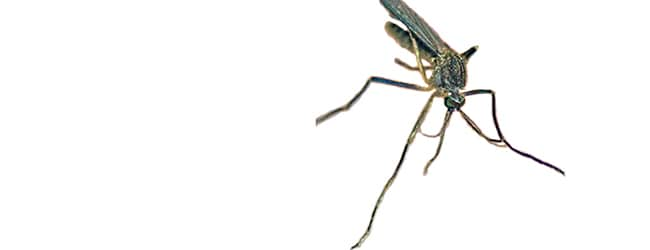The disease, which is similar to West Nile virus, can infect humans, mammals and birds through the bites of mosquitoes that have fed on infected reservoir hosts. While most people infected with the EEE virus show no signs of illness and make a full recovery, the disease is serious with 4 to 5 percent of those infected developing flu-like symptoms that advance rapidly, often leading to permanent disability. The virus can also cause death.
The deer in Winslow was described as disoriented, thin, and drooling. When it was approached it was unafraid and was lying down with its head up. The deer was euthanized by a Division of Fish and Wildlife Conservation Police Officer and submitted to the NJ Department of Agriculture for testing.
Other symptoms in deer can include depression, weakness, loss of coordination, circling, seizures, blindness, excitability, aggression, and irritability. The disease appears to minimally impact deer populations in North America and is unlikely to significantly impact the overall deer population.
Most birds with EEE do not show any symptoms and never become ill. However, EEE can cause illness and death in some bird species including pigeons, pheasants, turkeys, emu, and quail. Birds infected with EEE may exhibit a staggering gait, drooping wings, twisted neck, or tremors.
If you observe wild birds or mammals exhibiting unusual behaviors or the symptoms described above, please call the Division's Wildlife Pathology Office at 908-735-6398 or the DEP Hotline at 877-WARN-DEP (877-927-6337).
The Division offers the following tips to reduce the potential for contracting EEE:
- Use insect repellent when outdoors and cover exposed skin, especially at dusk when mosquitoes are most active.
- Standing water around homes also should be removed because mosquitoes lay their eggs in water. Host seeking mosquito activity may persist during the day at this time of year if temperatures are warm enough for mosquitos to fly (55 degrees F and higher). The first killing frost is the official end of the adult mosquito season in any given area.
- Take precautions when field-dressing harvested animals to avoid contracting potentially infectious diseases. Wear gloves when field dressing, skinning, and/or processing game. and clean knives thoroughly before and after using them. Thoroughly wash hands when through.
SOURCE: njfishandwildlife.com/news/2019/eee_advisory.htm

No comments:
Post a Comment